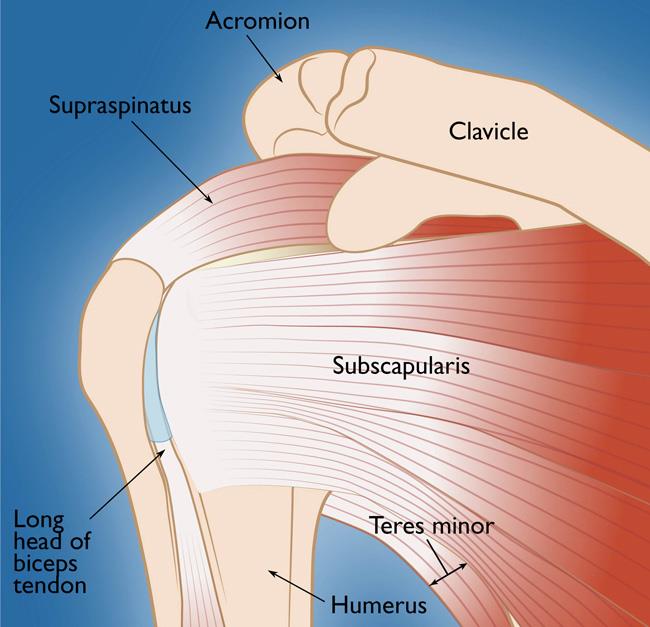The shoulder is one of the most complex joints in the body, allowing for a wide range of motion. However, this complexity also makes it susceptible to injuries, particularly to the rotator cuff. The rotator cuff consists of four muscles and their tendons, providing stability and movement to the shoulder joint. When these tendons are damaged or torn, it can lead to significant pain and functional limitations.
Symptoms of Rotator Cuff Tears
Patients with a rotator cuff tear often experience shoulder pain that worsens with activity, especially overhead movements. Other common symptoms include:
- Weakness in the shoulder
- Difficulty lifting objects
- Pain that disrupts sleep, particularly when lying on the affected shoulder
- A cracking or popping sensation when moving the shoulder
Diagnosis
Diagnosing a rotator cuff tear typically involves a combination of a physical examination and imaging studies. During the physical exam, an orthopedic specialist will assess the range of motion, strength, and stability of the shoulder. Imaging tests, such as X-rays, MRI, or ultrasound, are used to confirm the diagnosis and determine the severity of the tear.
Treatment Options
Treatment for rotator cuff tears varies depending on the severity of the injury and the patient’s overall health and activity level. Options include:
- Conservative Management: Rest, physical therapy, and nonsteroidal anti-inflammatory drugs (NSAIDs) can help reduce pain and inflammation. Corticosteroid injections may also be considered for temporary relief.
- Surgical Intervention: If conservative treatments are ineffective or if the tear is severe, surgery may be recommended. Surgical options include arthroscopic repair, mini-open repair, or open surgical repair, depending on the size and location of the tear.
Recovery and Rehabilitation
Post-surgery rehabilitation is crucial for restoring shoulder function and strength. A structured physical therapy program, guided by your orthopedic surgeon, will help you gradually return to daily activities and, eventually, sports or work-related tasks.
Rotator cuff tears can significantly impact your quality of life, but with proper diagnosis and treatment, most patients can regain full shoulder function. If you’re experiencing shoulder pain or suspect a rotator cuff injury, consult an orthopedic specialist to explore your treatment options.
Conclusion
In conclusion, rotator cuff tears are a common shoulder injury that can significantly impact your quality of life if left untreated. Recognizing the symptoms early, seeking a proper diagnosis, and exploring both non-surgical and surgical treatment options can pave the way for a successful recovery. Dr. Oladapo M. Babatunde, a top shoulder surgeon in New Jersey, specializes in treating rotator cuff injuries with advanced surgical techniques and personalized care. His expertise in both surgical intervention and rehabilitation ensures that patients receive the highest standard of treatment, helping them regain mobility and live pain-free. If you’re experiencing shoulder pain or suspect a rotator cuff tear, consulting with Dr. Babatunde can provide the expert guidance you need to restore your shoulder health.
Have Questions?
Please call our East Rutherford, New Jersey Office at 201-500-9450 or West Orange, New Jersey Office at 973-447-3525
"*" indicates required fields




